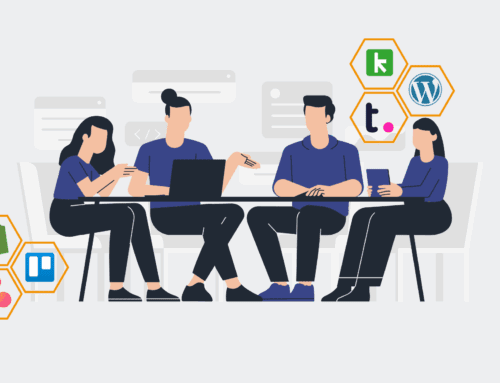The Indispensable Role of Human Oversight in AI-Driven Recruitment Processes
In the rapidly evolving landscape of talent acquisition, Artificial Intelligence has emerged as a transformative force, promising unprecedented efficiencies from candidate sourcing to initial screening. Yet, amidst the excitement surrounding AI’s capabilities, a critical question often arises: how do we ensure these powerful tools serve, rather than supersede, the human element? For business leaders at high-growth companies, the answer lies in robust human oversight—a strategic imperative that safeguards ethical standards, preserves candidate experience, and ultimately drives superior hiring outcomes.
At 4Spot Consulting, we’ve seen firsthand how AI can dramatically reduce the time and cost associated with recruitment. However, our approach isn’t just about automation; it’s about intelligent automation that is carefully integrated and constantly monitored. The promise of AI in recruitment isn’t to replace human decision-making, but to augment it, freeing up recruiters and hiring managers to focus on high-value tasks that require empathy, strategic thinking, and nuanced judgment.
Navigating the Ethical Minefield: Bias, Fairness, and Transparency
One of the most pressing concerns with AI in recruitment is the potential for algorithmic bias. If AI models are trained on historical data that reflects existing human biases—whether conscious or unconscious—they will inevitably perpetuate and even amplify those biases. This can lead to qualified candidates being overlooked, diverse talent pools being narrowed, and ultimately, a less innovative and representative workforce.
Human oversight is the frontline defense against such issues. It involves proactively auditing AI algorithms, regularly reviewing training data for imbalances, and establishing clear parameters for fairness. Recruiters and HR professionals, armed with a deep understanding of organizational values and legal requirements, must act as ethical stewards, questioning AI’s recommendations and ensuring hiring decisions are based on merit, not machine-learned prejudice. Transparency in how AI is used and the factors it considers is also crucial, not just for compliance but for building trust with candidates and employees.
Enhancing, Not Erasing, the Candidate Experience
The job market today is highly competitive, and the candidate experience plays a pivotal role in attracting top talent. While AI can streamline initial interactions, such as chatbots answering FAQs or automated resume screening, it lacks the warmth, empathy, and personalized touch that define a truly positive experience. Over-reliance on AI can lead to a dehumanized process where candidates feel like just another data point.
This is where human oversight becomes paramount. Recruiters should leverage AI to handle the mundane and repetitive tasks, allowing them more time to engage meaningfully with promising candidates. This means personalizing outreach, conducting insightful interviews, offering timely feedback, and building genuine relationships. The human touch ensures that candidates feel valued and understood, even as AI optimizes the backend processes. For instance, after an AI has filtered thousands of applications, a human reviewer can quickly identify and elevate candidates who might not perfectly fit an algorithmic mold but possess unique skills or potential that a machine would miss.
Strategic Alignment and Continuous Improvement
AI models are only as good as the data they’re fed and the objectives they’re set to achieve. Without continuous human oversight, AI-driven recruitment systems can drift out of alignment with the organization’s evolving strategic goals. Business leaders need to regularly assess whether AI is truly contributing to the desired hiring outcomes—be it increased diversity, faster time-to-hire for critical roles, or improved quality of hire.
This oversight involves setting clear metrics, reviewing performance data, and providing feedback loops to refine AI algorithms. It’s an iterative process where human insights inform AI adjustments, and AI’s outputs inform human strategy. For example, if an AI is consistently identifying candidates from a specific background, human intervention might be needed to broaden its search parameters or re-evaluate the bias in the underlying data. This proactive management prevents AI from becoming a static, black-box solution and instead transforms it into a dynamic, intelligent partner in talent acquisition.
The Future is Human-Led AI
The integration of AI into recruitment is not a question of if, but how. For high-growth companies aiming to scale efficiently and effectively, the answer lies in a collaborative model where human expertise guides and refines AI capabilities. Automation and AI are powerful tools, but they require a strategic framework and diligent human oversight to truly unlock their potential while mitigating risks.
At 4Spot Consulting, our mission is to empower businesses with automation and AI solutions that deliver tangible ROI—saving 25% of your day by eliminating human error, reducing operational costs, and increasing scalability. We believe that when human intelligence and AI work in concert, the recruitment process becomes not only faster and more cost-effective but also more ethical, engaging, and ultimately, more successful in securing the right talent for your future. The human role in AI-driven recruitment is not diminishing; it’s evolving to become more critical than ever.
If you would like to read more, we recommend this article: Mastering Generative AI for Transformative Talent Acquisition








